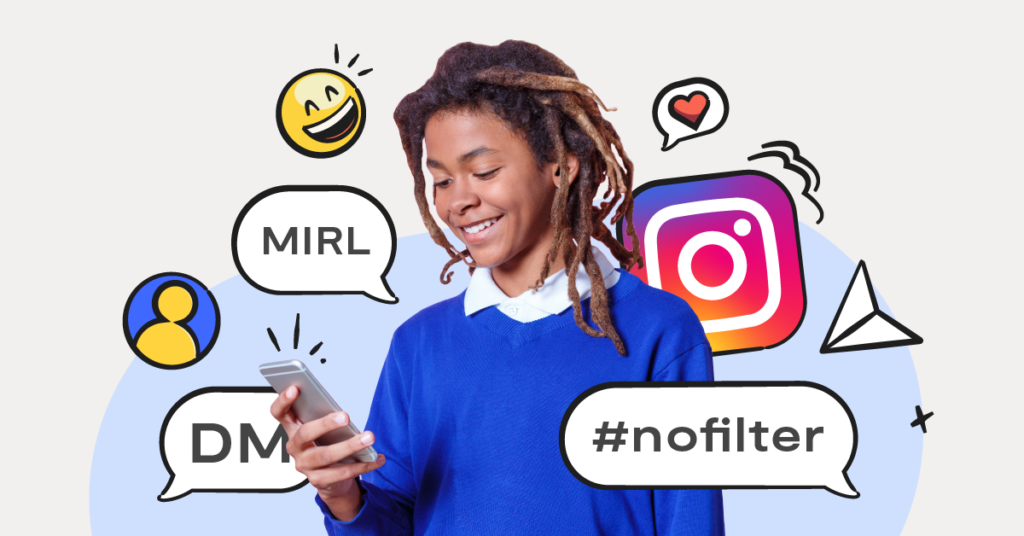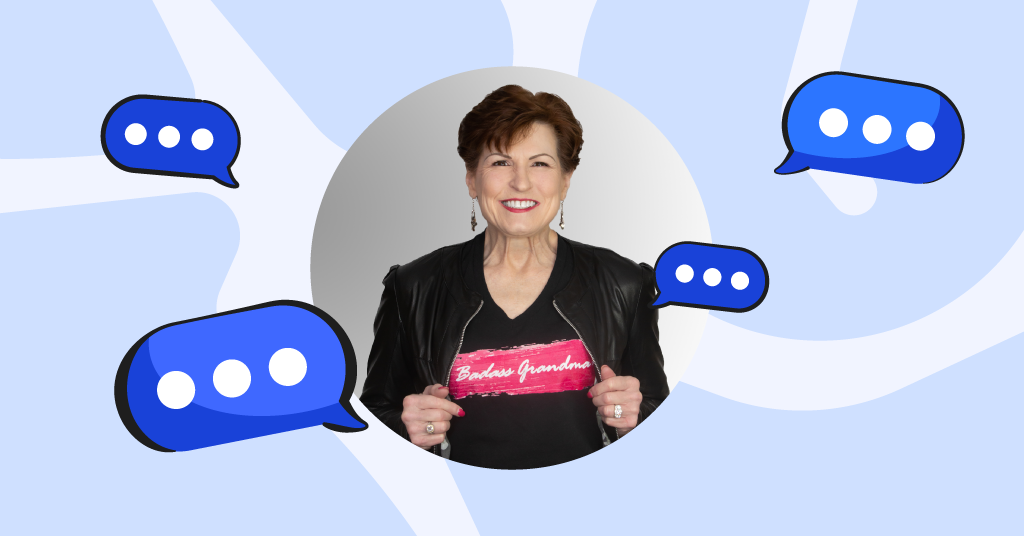
**Note: This list was updated on January 2, 2025.**
Social media platforms are hard enough to get the hang of with all of their new features, different functions, and the near-constant barrage of ads. Throw in ever-changing slang and you’ve got a fairly tough job of making sense of what kids are actually talking about. The worst part? While some parts of meme and slang culture are shared across social media, many terms are actually specific to a single app! This means that what kids are saying on Instagram can be entirely different from what they’re saying on Snapchat.
You’re probably wondering, “What on earth are they actually saying? Is it good? Bad? Funny? Concerning?” We’re here to help you decipher the strange, confusing world of Instagram slang. To help families out, we’ve compiled a list of the most common Instagram slang terms. Though it’s not exhaustive, this list will help you understand the context of casual conversations. We’ve separated sections of the list by topic or type of Instagram slang for easy reference in the future!
Instagram Terminology & Slang Words: Acronyms to Know
AMA — “Ask me anything” is used when someone plans to honestly and directly answer questions about something personal. AMA is typically used to start a longer conversation or comment thread.
IMO — “In my opinion” is Instagram slang that helps users explain that they are simply offering their own point of view. It’s somewhat similar to how “no offense” or “honestly” would be used during an in-person conversation.
TMW — “That moment when” describes a reaction shown in the specific image, GIF, or video that was shared. Most users say “TMW” to indicate a look of surprise, delight, disappointment, or another strong emotion.
MFW — “My face when” is nearly identical to “TMW” in that it’s a way to comically point out the facial expressions of someone shown in a shared piece of media.
H/T — “Hat tip” is a way of acknowledging someone else for a link, image, meme, or other piece of shared content.
SMH — “Shake my head” expresses disapproval of someone or something.
MIRL — “Me in real life” typically refers to how the poster or commentator can deeply relate to the content of the post.
Instagram Slang & Terminology Trends
WCW — “Woman crush Wednesday” is a classic hashtag trend used when someone posts content highlighting a woman they particularly admire or aspire to be like due to professional status, fitness, etc.
L4L — “Like for like” lets users show that they will give a like for every social media like they receive. This can be a way to quickly boost someone’s profile and activity.
MCM — “Man crush Monday” is exactly the same as WCW, but for men.
TBT — “Throwback Thursday” highlights content that’s personally significant from the past, or that refers to a particularly memorable moment in history (including memes, cultural trends, etc.).
FBF — “Flashback Friday” is the same as TBT, except that content is posted on Friday.
F4F — “Follow for follow” is identical to L4L, but refers to following a user’s social media account instead of liking content.
Instagram Slang for Platform Use
DM — Short for “direct message,” this acronym is often used in the phrase “slide into their DMs.” This means that they tried to nonchalantly privately message someone that they are attracted to, or that someone did the same thing to them.
IGer — “IGer” is just another word used to describe someone who uses Instagram.
#nofilter — People use #nofilter when an image is posted without any editing or filters. It often appears with images or videos that speak to self-worth or self-image, or in moments of personal vulnerability.
Kik me — “Kik me” is a way of saying that you want to connect with someone on Kik, which is another — and way more dangerous — social media platform.
What You Can Do
You might see these Instagram terminology and slang words used in posts, captions, DMs, hashtags, and comments. If it feels daunting to track and decode your child’s online activities yourself, consider using a tool like Bark for smart insight into your child’s online activity. In addition to content monitoring, Bark also gives parents a deeper understanding of their child’s moods and overall well-being by tracking sentiment across devices and accounts — from email and texts to apps and social media. Interested? You can try it today for free.
Read more
Bark helps families manage and protect their children’s digital lives.





